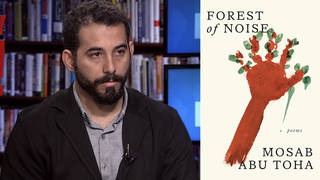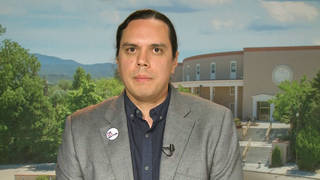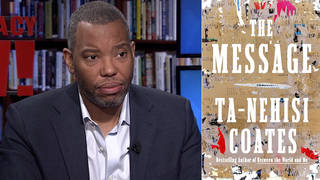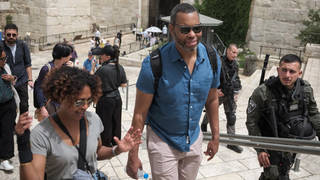Six environmentalists have been named winners of the 23rd Goldman Environmental Prize.
Alaskan-Inupiat activist Caroline Cannon won for her work to protect against drilling in the Arctic seas.
Caroline Cannon: “When I met with President Obama a couple years ago, he told me that he knew what it felt to be treated as a second-class citizen. He made a promise to work with the Inupiat people and to protect our way of lifestyle. That gave me hope. Now is the time to hold him to that promise.”
Kenyan activist Ikal Angelei won a Goldman Prize for her campaign to block the construction of one of East Africa’s most significant infrastructure projects, the GIBE-3 Dam, that could lead to the region’s Lake Turkana drying up.
Ikal Angelei: “The biggest challenge was working with a community who’s having—there are already a lot of problems, so access to food, access to healthcare, insecurity, lack of government support. It’s so hard when you’re talking about environmental rights and resource governance in a place where people are just thinking, 'Can I just get a meal today? Can I see today and, you know, wait and see what tomorrow brings.' So that was the hardest challenge. But working in an area where the communities were already in conflict over resources was really hard to bring them together and say, 'Listen, we understand the other issues, but as of now we have to speak as one voice.'”
The other winners were Ma Jun from China, Evgenia Chirikova from Russia, Edwin Gariguez of the Philippines, and Sofia Gatica from Argentina.










